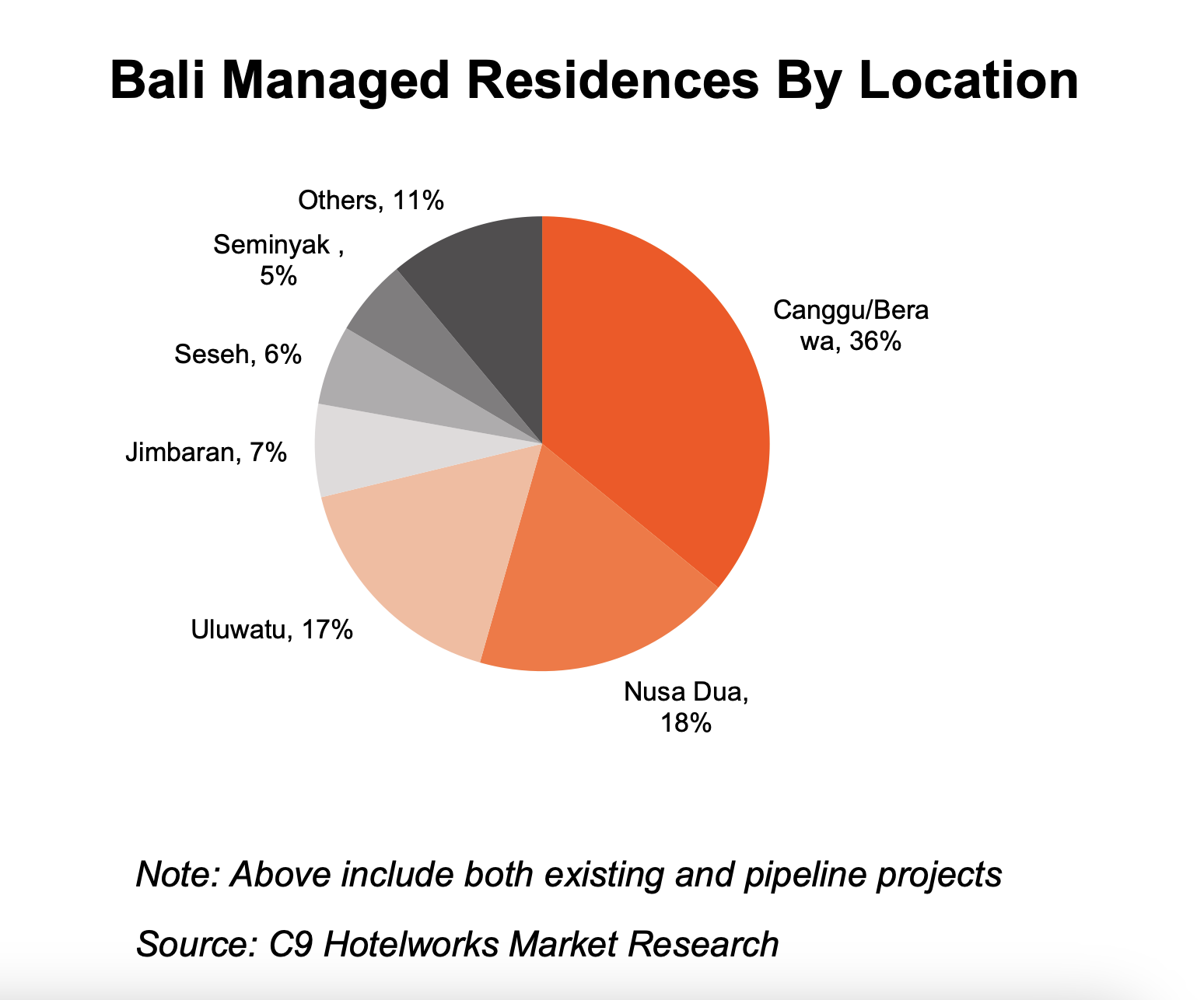Navigating Bali’s real estate market: A strategic business outlook

In the realm of Southeast Asian resort destinations, Bali stands out for its historical focus on tourism rather than real estate development, setting it apart from counterparts like Phuket and Koh Samui. However, recent market research from C9 Hotelworks sheds light on emerging opportunities within the branded residences sector, signalling a shift in the island’s property landscape.
Traditionally, Bali has been overlooked by major Indonesian property conglomerates in favour of larger-scale projects in urban centres like Jakarta. Regulatory constraints on foreign property ownership, coupled with short leasehold terms for non-Indonesians, have further dampened the enthusiasm for real estate ventures on the island.
Nevertheless, market dynamics are undergoing a transformation. There’s a notable shift in mindset among Indonesian developers, with a strategic focus on introducing branded residences to Bali. The development pipeline now includes mixed-use developments featuring globally recognised hotel brands such as the Anantara and Oakwood Hotel underscoring the shifting tides within the market.

The COVID-19 pandemic has served as a catalyst for increased investment in Bali’s resort-grade real estate market, particularly driven by domestic buyers seeking secondary or vacation properties. Factors such as geopolitical tensions, remote work trends, and post-pandemic lifestyle changes have fuelled demand, resulting in a substantial 184 percent growth in hospitality-led property developments from 2022 to 2023.
Geographically, the market exhibits distinct clusters in prime locations such as Canggu/Berawa, Greater Nusa Dua, and Uluwatu. Emerging trends indicate a pivot towards Southwest areas like Uluwatu and Ungasan, characterised by active lifestyles, surf culture, and reduced congestion, presenting new avenues for development.

Another trend is offshore island real estate becoming more accessible as prime sites in South Bali are increasingly scarce. In Greater Bali, Bask Gili Meno has been a changemaker with branded residences on the oceanfront fronting a white sand beach. Other islands experiencing more property development are Nusa Lembongan and Nusa Penida.In terms of property offerings, independent properties dominate the market landscape, comprising 69 percent of total inventory. However, branded properties are gaining traction, accounting for 32 percent of the market share. Condominiums and apartments remain the preferred choice, reflecting a strategic focus on investment-oriented products targeting discerning buyers.

Affordability remains a key consideration, with entry-level residences priced around USD130,000, catering to investors seeking optimal rental yields. In the mid-range segment, studio apartments command attention, followed by one-bedroom and two-bedroom units, each tailored to diverse buyer preferences and investment strategies.
Looking ahead, both Indonesian and foreign investors are actively exploring opportunities in mixed-use projects, driving greenfield developments and diversification strategies among existing hotel properties. As larger Indonesian developers enter the fray, a corresponding uptick in land prices is anticipated, heralding a new chapter in Bali’s real estate narrative.
In summary, Bali’s real estate market presents a strategic playing field for investors keen on navigating the evolving landscape. With changing market dynamics, regulatory frameworks, and investor sentiments, the island offers compelling opportunities for savvy stakeholders looking to capitalise on its booming tourism sector and dynamic real estate market.
Read and download the full report here: C9 Hotelworks Bali Hotel and Branded Residences 2024
About Bill Barnett
 Bill Barnett — a globally recognised hospitality, tourism, and real estate advisor — is the founder and managing director of Asia-based C9 Hotelworks and esteemed member of the PropertyGuru Asia Property Awards (Greater Niseko) Judging Panel.
Bill Barnett — a globally recognised hospitality, tourism, and real estate advisor — is the founder and managing director of Asia-based C9 Hotelworks and esteemed member of the PropertyGuru Asia Property Awards (Greater Niseko) Judging Panel.
In addition to being a leading consultant, he is a frequent speaker at industry events and conferences. With over 30 years’ experience in the Asia Pacific region, he has an extensive background in hotel operations, development, and asset management. His past employment highlights include Senior Corporate roles at international hotel chains and publically listed companies. Bill is considered to be one of the foremost industry experts in the hotel residences sector. To date, Bill is the author of four books on travel, property, and hospitality under the titles of Slave to the Bean, Collective Swag, It Might Get Weird and Last Call.
For more information, email: [email protected].
Recommended
Why everyone is moving to Selangor and Johor: Malaysia’s real estate comeback
Malaysia’s upturn in fortunes is especially prevalent in secondary destinations such as Selangor and Johor
Penang’s silicon boom: How the US-China tech war is supercharging local real estate
Penang’s booming semiconductor industry has created ripples within the local real estate sector
New leader, new opportunities: How Hun Manet is shaking up Cambodia’s real estate game
Hun Manet is overseeing decent economic growth and widening access to the country’s real estate market for foreigners
Singapore embraces inclusive housing reforms amid resilient demand
The Lion City’s regulatory strength continues to exert appeal for international investors








